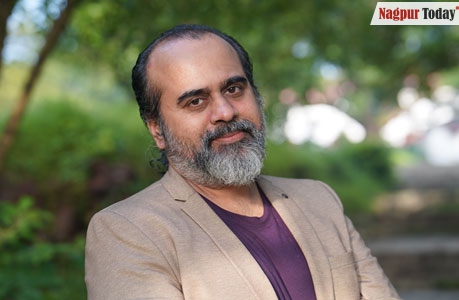
The Indian Civil Services (ICS) encompass prestigious roles such as the Indian Administrative Service (IAS), Indian Police Service (IPS), and Indian Foreign Service (IFS). These positions are highly coveted for their significant influence, authority, and impact on India’s governance and development. In India, a career in civil services is not merely a job but a symbol of respect and prestige.
The esteemed position of the ICS is deeply rooted in historical, social, and institutional factors. Originating from the British Raj, where it was established as a powerful administrative body, the ICS evolved into the Indian Administrative Service (IAS) post-independence. This evolution maintained its status as a symbol of authority and governance. The role of civil servants in shaping modern India and their contributions to nation-building have further cemented their significance.
Social and cultural factors also enhance the prestige of civil services. Civil servants are esteemed for their perceived integrity and dedication. The competitive nature of the examination and the associated prestige elevate the social status of individuals and their families. Moreover, civil service positions offer job security, attractive perks, and benefits, which further enhance their appeal and standing.
The examination process for the ICS (now UPSC) is notably rigorous. It includes a Preliminary Examination, a Main Examination with multiple written papers, and a final Interview/Personality Test. Preparing for this exam involves several years of intense study and often significant financial expenditure on coaching and materials. The competition is fierce, with hundreds of thousands of candidates vying for a limited number of positions, resulting in a success rate of 0.078%.
Given the prestige and security associated with an ICS career, it is rare for individuals to abandon such positions. However, there are notable examples of those who have chosen to forgo their esteemed roles to pursue broader societal reform. These individuals are exceptionally rare, with such instances being few and far between. This article will explore the extraordinary journeys of three such individuals—Sri Aurobindo Ghosh, Subhash Chandra Bose, and Acharya Prashant—who relinquished their secure positions to contribute significantly to societal change.
Sri Aurobindo: From Revolutionary to Spiritual Pioneer
Sri Aurobindo Ghose (15 August 1872 – 5 December 1950) was an Indian philosopher, yogi, maharishi, poet, and nationalist. He was also a journalist, editing newspapers such as Bande Mataram. His early life involved studying in England and working in the civil service in India before becoming deeply involved in nationalist politics and the revolutionary movement. He played a crucial role in the Indian independence movement against British colonial rule and was one of its influential leaders until 1910. His engagement with revolutionary politics led to his imprisonment, where he had profound mystical experiences that redirected his path.
After his release, Sri Aurobindo moved to Pondicherry, where he developed Integral Yoga, a spiritual philosophy focusing on the evolution of human life into a divine existence. He founded the Sri Aurobindo Ashram alongside Mirra Alfassa, known as “The Mother,” in 1926. Despite being nominated twice for the Nobel Prize, Sri Aurobindo never received the award. His significant literary works include The Life Divine, Synthesis of Yoga, and Savitri: A Legend and a Symbol, all of which reflect his philosophical and spiritual insights.
Subhash Chandra Bose: Nationalist Hero Who Shunned Conventional Success
Subhas Chandra Bose (23 January 1897 – 18 August 1945) was an Indian nationalist whose defiance of British authority made him a hero among many Indians. The honorific ‘Netaji’ (Hindustani for “Respected Leader”) was first used in Germany in early 1942 by the Indian soldiers of the Indische Legion and by German and Indian officials in Berlin. Bose’s early life in a wealthy Bengali family and his Anglo-centric education led him to England to take the ICS examination. Although he excelled in the initial exams, he declined to take the final exam, choosing instead to focus on nationalism as his higher calling. Bose’s decision to leave a promising civil service career was driven by his commitment to India’s independence. His subsequent leadership in the Indian National Army and his relentless struggle against British rule solidified his legacy as a key figure in India’s freedom movement.
Acharya Prashant: From Civil Servant to Spiritual Leader
Prashant Tripathi, now known as Acharya Prashant, represents a unique transformation from a successful civil servant to a distinguished wisdom teacher. An alumnus of IIT Delhi and IIM Ahmedabad, Acharya Prashant initially secured a prestigious position as a Civil Services officer. However, driven by a strong personal conviction, he chose to step away from a life of guaranteed comfort and success.
Acharya Prashant founded the Prashant Advait Foundation, which focuses on spiritual teaching and social reform. His extensive work includes over 160 books on topics ranging from philosophy and spirituality to social issues. Notable for his scholarship in Vedanta philosophy, his teachings advocate for living rightly, environmental protection, women’s empowerment, and compassion for animals. His advocacy on climate change and biodiversity has earned him recognition as “Most Influential Vegan of India” by PETA in 2022. His journey from civil services to spiritual leadership underscores his commitment to a higher purpose and a broader societal impact.
Conclusion
The journeys of Sri Aurobindo, Subhash Chandra Bose, and Acharya Prashant highlight the rare but profound decision to leave prestigious ICS positions in pursuit of greater societal and spiritual reform. Their stories reflect a commitment to values and visions that transcend conventional success, demonstrating how personal sacrifice can lead to transformative impact. Their legacies continue to inspire and challenge us to consider the broader implications of our own choices and contributions to society.
To explore how these influential figures’ decisions and teachings can inspire your own path and understanding of societal reform, visit Acharya Prashant’s Website. Here, you will find resources and insights that expand on their shared vision of profound change and provide guidance on integrating such principles into your own life for a more impactful and meaningful journey.
















